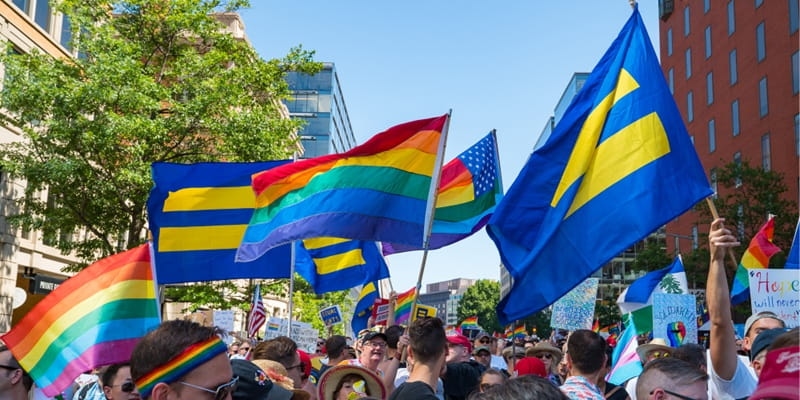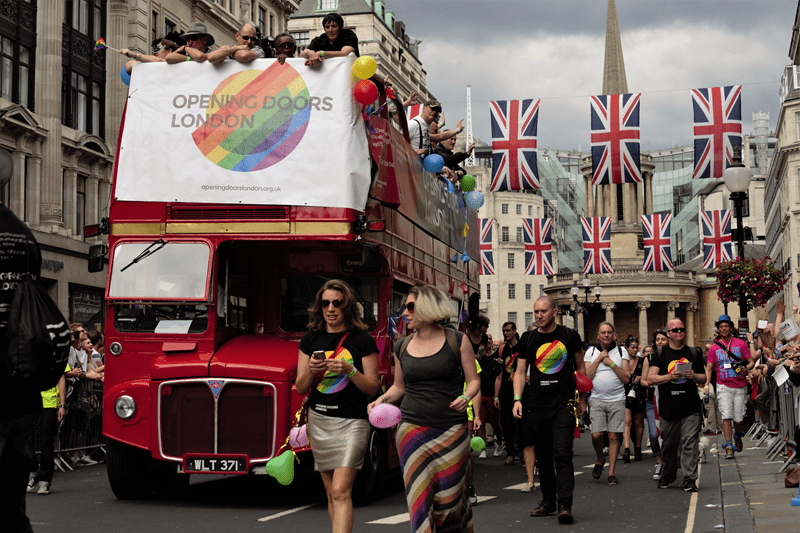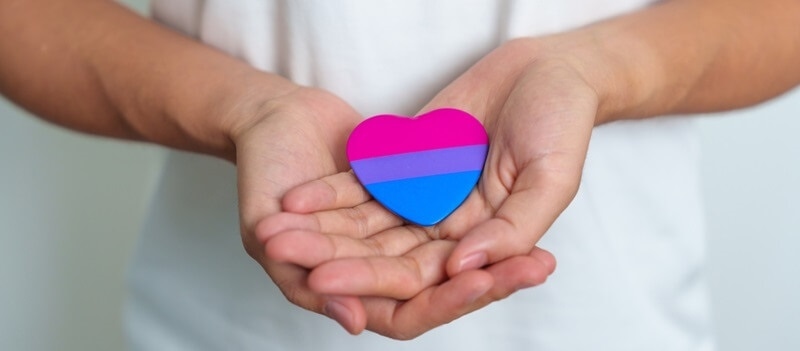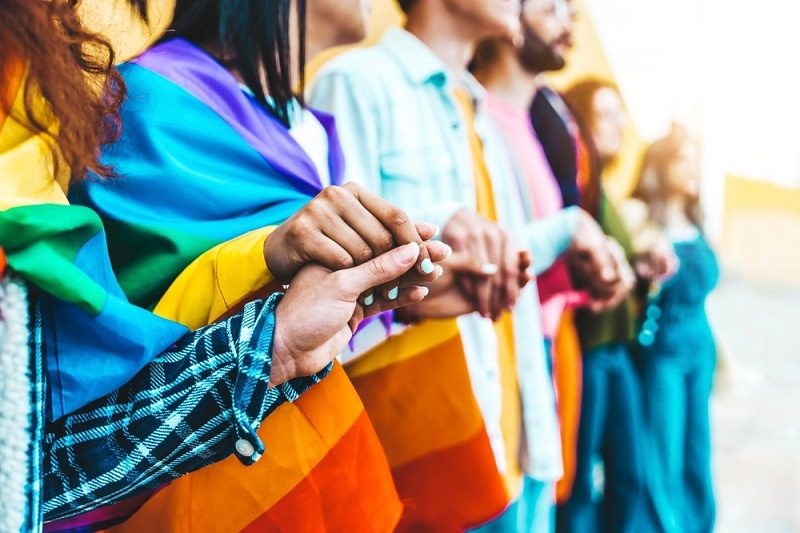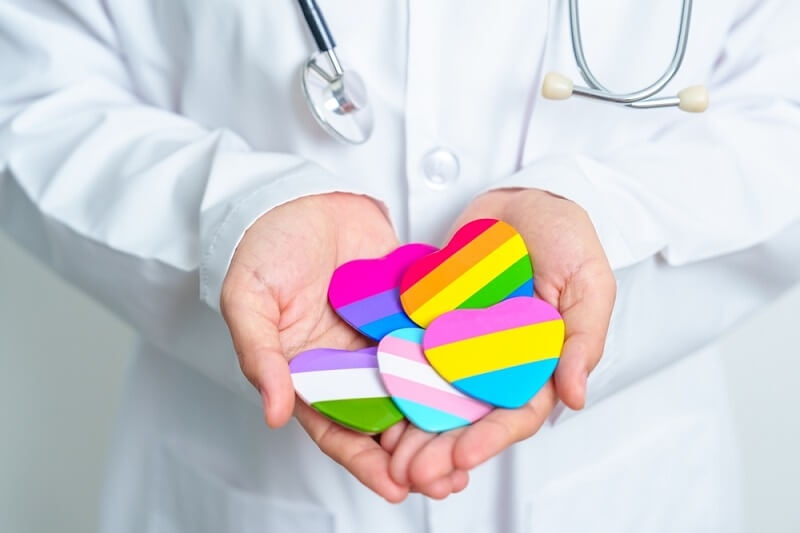Understanding and Addressing Eating Disorders in Gay Men

Eating disorders are a major issue that has affected many people, including gay men. Issues in this category include anorexia nervosa, bulimia nervosa, and binge eating disorder, which are common but often ignored.
It is important to know and identify the prevalence of eating disorders in gay men because this population suffers from certain unique pressures and psychological stressors in society. Vulnerable is the group that, due to cultural, emotional, and psychological factors, worsens risk and severity.
Comprehending Eating Disorders
Eating disorders are complex mental health conditions characterized by unhealthy eating habits and a preoccupation with body image. They can lead to severe physical and psychological consequences if not addressed.
These conditions are mostly referred to as anorexia nervosa, bulimia nervosa, and binge eating disorder. These eating disorders aren't always about the food but, instead, a medium through which deep emotional problems manifest themselves as ways to be in charge of life or to forget their pain and anxiety.
Statistics and Prevalence
The prevalence of eating disorders in gay men is significantly higher than it is in their heterosexual peers. It has been discovered that gay men have increased body dissatisfaction and unhealthy ways of controlling weight compared with their heterosexual counterparts. The rate of prevalence is correlated to the societal pressure that results in conformity to specific standards of the body ideal in the gay community, as these are often stricter there. Understanding these statistics raises awareness for targeted interventions and support for this group.
Misconceptions and Stigma
The widespread misconceptions and stigma surrounding eating disorders are a major obstacle to addressing them in gay men. Eating disorders are stereotyped as being exclusive to women, which results in underdiagnosis and lack of support for men. In addition, there is a stigma related to mental health issues within the gay community that prevents people from seeking help. There must be a reduction of misconceptions and stigma to encourage gay men to seek professional help in combating these myths.
Societal Pressures and Body Image
Societal pressure is one of the significant reasons why there are eating disorders in gay men. Most often, the media portrays the body image as lean, muscular, and flawless; it's hard to meet this expectation. Other communities usually have less attachment to their body images; hence, the more they grow discontent with their bodies, they seek ways to achieve the "perfect" body through unhealthy ways. Pursuit of perfection can, therefore, lead to or worsen an eating disorder.
Internalized Homophobia and Minority Stress
Internalized homophobia and minority stress are significant risk factors for eating disorders among gay men. Internalized homophobia is the "self-hatred emanating from the social stigma imposed against homosexuality." The effect of such internal conflict is always a sense of inadequacy, hatred for oneself, and depression, and it can actually lead to pathological eating habits. Minority stress, or chronic social stress experienced by stigmatized minorities, increases these issues among gay men, making it more probable for them to develop an eating disorder.
Emotional and Psychological Factors
Emotions and psychological issues usually manifest in low self-esteem, anxiety, and depression with eating disorders. Such people as gay men find emotional distress compounded by various aspects of sexual orientation difficulties. Compounded by peer and societal pressure to maintain these norms, personal encounters of rejection or discrimination are said to have contributed towards disordered eating as some way of coping. To get through, a person must address those basic emotional issues.
Anorexia Nervosa: Impact and Symptoms
Anorexia nervosa is characterized by extreme restriction of food intake, an intense fear of gaining weight, and a distorted body image. For gay men, the desire to achieve a thin, fit appearance can drive the onset of anorexia. This eating disorder can cause very severe physical health issues, like malnutrition, heart and bone density loss, and psychological distress that will affect their relationships and quality of life. Root causes must be dealt with, and supportive care must be offered to an individual afflicted with this condition, most especially from harmful practices such as Gay Conversion Therapy.
Bulimia Nervosa: Consequences and Indicators
Bulimia nervosa characterizes binge-eating spells followed by purging with vomiting, excessive exercising, and misuse of laxatives. In gay men, an ideal body image that is deemed necessary to be achieved drives them toward bulimia as they can indulge in food but not gain weight. Such physical complications include electrolyte disturbance, gastrointestinal problems, and tooth decay. Psychologically, it is filled with shame, guilt, and anxiety while trying to overcome the disorders.
Binge Eating Disorder: Recognition and Effects
Binge eating disorder refers to the repeated episodes of consuming large amounts of food, often fast and to the point of distension. Unlike bulimia, episodes of bingeing are not accompanied by purging behaviors. The disorder is associated with emotional distress and used as a mode of coping with tension or negative emotions. Serious guilt and loss of control associated with bingeing cause Gay men to suffer due to binge eating disorders psychologically.
Other Specified Feeding or Eating Disorders (OSFED)
OSFED incorporates all those eating disorders that don't fit into the category of anorexia nervosa, bulimia, or binge eating disorder but still prove to be serious health issues. For example, atypical anorexia may include anorexic behaviors in the absence of low body weight, or purging disorder may be where purging occurs without binge eating. These varied symptoms may occur among gay men, so a recognition of these conditions requires attention to provide appropriate care and support. Recognizing all these symptoms and the challenge that is unique can, therefore, lead to better treatment, offering valuable tips for Gay and Bisexual Men on managing and overcoming these disorders.

Psychological and Emotional Impacts
Depression and anxiety are critical psychological conditions that enhance the progression of eating disorders among gay men. Depression and anxiety generally worsen low self-esteem and inadequacy feelings that may prompt an individual to seek control through means such as food and body image. The constant distress and emotional turmoil brought about by depression and anxiety often results in eating disorders, as the patient will be seeking an avenue of control of their overpowering emotions through this channel.
Trauma and adverse past experiences can easily trigger eating disorders in gay men. Such as bullying, discrimination, and rejection experienced in formative years tend to have a very long-lasting impression on gay men, thus creating deep emotional wounds. Such adverse incidents internalize a lot of negativity and self-blame and further motivate them towards an unhealthy diet due to their unrelieved emotional wounds.
Since the effects of trauma can be long-lasting, every treatment modality should take into account the spectrum of the eating disorder and the unconscious psychological wounds.
Self-esteem and self-worth are two very crucial elements in the development and continuation of eating disorders. Gay men, due to the issues of unacceptance from society and internalized homophobia, often suffer from low self-esteem and poor self-worth. Constant comparison with idealized body standards only worsens the emotions, therefore resulting in eating disorders as an attempt at seeming perfect. Recovery, specifically, is on self-esteem and building a healthy positive self-image that will break the cycle of destructive behavior.
Solutions and Support
First step to recovery from eating disorders involves recognizing the need for seeking help and treatment. The results of early intervention are significant in that professional help provides both the tools and support required to address the physical as well as the psychological nature of the disorder. What is more urgent for overcoming the existing eating disorder prevalence among gay men is to desist from the stigma around seeking help. There are various therapies and counseling options for the treatment of eating disorders. The most effective among these is cognitive-behavioral therapy (CBT), which helps in the elimination of unhealthy thoughts concerning food and body image.
Other therapeutic methods include dialectical behavior therapy, which centers on emotional management, and interpersonal therapy, targeting relationship problems that may underlie the eating disorder. Tailored counseling that incorporates the unique experiences of gay men can really make a difference in effectiveness.
Support groups and community resources enhance recovery as well. A support group is where a person can feel comfortable sharing their experience with other individuals who are having similar experiences. Community resources may involve LGBTQ+ organizations that may provide even more support and a connection to a certain treatment provider. Feeling a belonging and acceptance in such groups often combat eating disorders.
Prevention and Awareness
The prevention of such eating disorders is possible with the promotion of body positivity and self-acceptance. When gay men are encouraged to appreciate their bodies and reject the wrong societal expectations, they will not struggle with the pressure to conform to unrealistic ideals. Campaigns and other initiatives celebrating diverse body types and practicing self-love are also essential in fostering a healthy body image.
The reduction in the incidence of eating disorders among gay men is partly achieved by addressing societal pressures and stereotypes. Most media and cultural images are often unreachable body standards. Overcoming such stereotypes and encouraging more representative and realistic portrayals of gay men can relieve such pressure from achieving a certain body image that might lead to the development of eating disorders.
Early intervention and education will prevent eating disorders. Young gay men can be educated on the risks of disordered eating and the need for mental health, allowing them to recognize warning signs early and seek help. Schools, community centers, and healthcare providers should emphasize the need for mental health and make resources available to those at risk of developing an eating disorder.
You may also like The Benefits and Challenges of Gay Open Relationships: Exploring the World of Non-Monogamy
Final Thoughts
The psychological and emotional effects of depression, anxiety, trauma, and low self-esteem contribute much to the commonness of eating disorders among gay men. Therefore, understanding and providing support and treatment for each of these factors is integral.
We need to spread body positivity, get free from societal pressure, and start treatment as early as possible to overcome such disorder problems. If proper assistance is provided, with an increase in the level of awareness, then the patient is able to overcome such disorder problems and regain healthiness and wellness. The suffering patient must look for medical care and should know that nobody ever has the same condition of healing and recovery.
This content was created by AI










